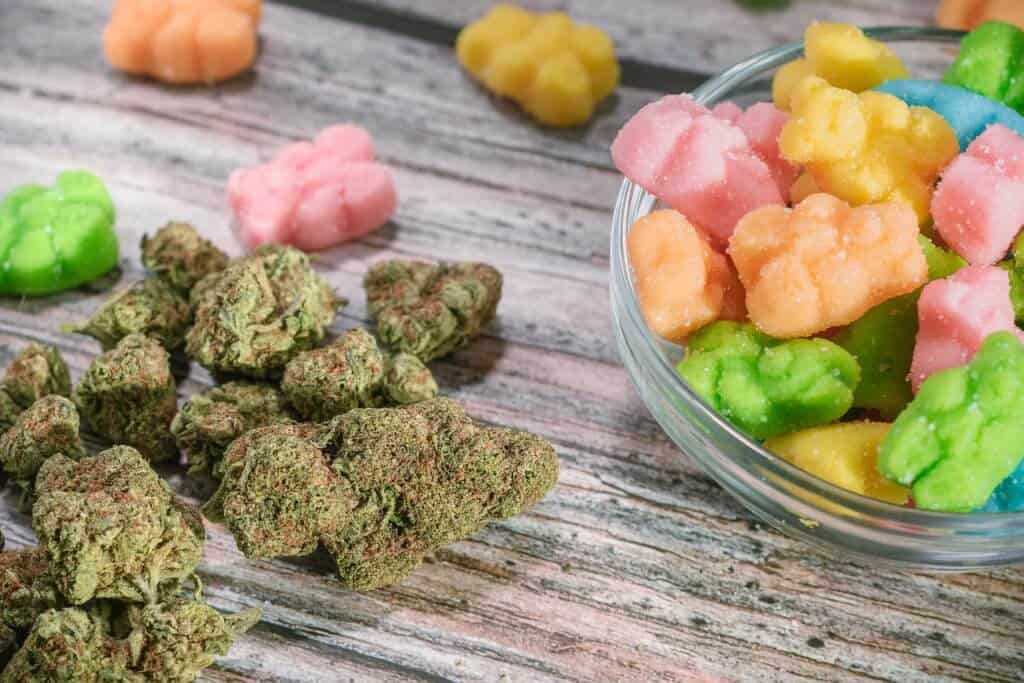The Definitive Guide For CBD And Sleep

CBD Oil For Sleep – CBD oil is all over the news these days. It’s been debated, regulated, and ultimately called a cure-all.
THC and CBD have been linked in the past, and while they come from the same plant, they offer very different results.
While THC is known as for CBD what does it do, how does it work, and how effective is it?
We dove deep on CBD oil and what we found out about it may surprise you.
From its production to its practical applications, CBD is something both strikingly familiar and totally cutting edge.
Here’s your complete guide on what you need to know about CBD and sleep.
What Is CBD Oil?
CBD oil stands for cannabidiol oil, a nonpsychoactive compound that’s found in cannabis or help plants.
While cannabis plants are known for their, uh, other recreational uses, they also have hundreds of different compounds that are used for all kinds of therapy and medical effects.
Discovered in the 1960s, Cannabinoids – those cannabis compounds – are used to treat all kinds of symptoms and conditions from pain to inflammation to anxiety to post-traumatic stress disorder.
They’ve even been used for Parkinson’s disease and some types of cancer.
CBD is now available in supplement forms, typically as an oil.
It is CBD is legal in all 50 states — even states that do not allow for medical cannabis.
This is because CBD oil has no psychoactive properties, meaning it won’t leave you feeling unsharp or out of it.
There is no “high” associated with CBD, instead, it has an anti-anxiety, anti-psychotic affect — seemingly making it the perfect sleep aid.
So before we answer can CBD get you a good night’s sleep, let’s figure out what it is, how it’s harvested, and how it affects us.
Knowledge is power, right?
How Is CBD Oil Harvested?
CBD oil is made from harvesting either a cannabis plant or a hemp plant, then readying them for extraction.
- There are many types of extraction solvents that can be used to separate the essential oils from the stalks and seeds, but typically producers will use some sort of non-toxic CO2 fluid as a solvent.
- These are regulated by the FDA and are used for commercial extraction in other areas of the food industry.
- Those solvents are then forced through the plant material to pull out the CBD and other essential oils and lipids.
- The solvent is removed and what you are left with is CBD hemp oil. No THC is gleaned from this process.
- Those products are then bottled and labeled and tested to find the best CBD oil for sleep.
These CBDs can take many forms, but some include tinctures, edibles, and other easily digestible forms.
Is CBD Safe For Short-Term Use?
CBD oil is absolutely safe for short-term use. It has a “favorable safety profile” according to a recent article published by the National Institute of Health.
In comparison to other drugs used for similar treatments, its symptoms were much milder.
Occasionally there were mild side effects from intense use such as tiredness, diarrhea, and a change in appetite or weight.
These studies are ongoing but suggest that CBD is a much safer (and more natural) alternative than using other sleep aids.
Overall, it is seen as a symptomless, or very mild symptoms, treatment plan.
Is CBD Safe For Long-Term Use?
Unfortunately, there isn’t a ton of research available on long-term CBD use, but the general consensus is that it is indeed safe for longterm use.
Since CBD is a naturally occurring chemical that has been used for literally centuries, anecdotal evidence suggests that it can be used long-term without any detriment to your health.
This is an interesting new frontier in science where trials are taking place every day.
Suffice to say, it’s better for you than the alternatives.
We will say that the testing standards are extremely high before these oils are released on the market, with experienced technicians testing for degradation, damage or other contamination so that only the best, purest, and most reliable CBD oil makes it to market.
Should You Be Supervised By A Doctor While Taking CBD Oil?
Your physician should know about any medication you plan on taking and CBD oil is no exception.
That doesn’t mean that your doctor needs to supervise you.
Common sense and caution are always recommended when trying a new medication.
That being said, there is no evidence that CBD oil will cause any major lifestyle changes or hurt your overall wellbeing, in fact, just the opposite is true.
Some of the biggest ways CBD oil can help is associated with post-traumatic stress disorder (PTSD), pain relief, anxiety disorders, Huntington’s disease, Alzheimer’s disease, Lennox-gastaut syndrome, Parkinson’s disease, chronic pain, and yes, sleep deprivation.
This is why there are so many CBD products on the market; it’s a low risk, high reward scenario.
Are There Medical Risks Associated With CBD Oil?
As previously mentioned, there aren’t any large health risks or disorders associated with CBD oil.
People who have experienced side-effects include tiredness, a change in appetite, and in some cases diarrhea.
There are no known long term effects from CBD oils.
Is CBD Oil Legal?
Pretty much across the board, yes.
While vape oil is regulated (as is marijuana and THC which are closely related to the hemp plant and are often confused) in many states, CBD is actually legal in all Fifty States.
This is why we’ve seen the proliferation of all kinds of cannabidiol oil products.
While many of these can be a sleep aid when used in a responsible dose, they’re marketed for all kinds of different pain relief and body issues.
It’s important to remember that CBD and THC aren’t the same things.
CBD comes from hemp and not typically the marijuana plant, which is why it can be legal in all Fifty States.
Hemp is legally grown in most states and is sold as good in all of them.
That’s why the best CBD oil for sleep can be found in states that don’t necessarily allow THC or legalized marijuana.
CBD Oil For Sleep – Why CBD Is Good For Sleep
Over 70 million Americans suffer from insomnia or some other form of sleeping disorder which is why so many people are desperate for a natural sleep cure.
It turns out that CBD oil for sleep is a natural use because of how people interact with THC and its effect on the body, specifically how we deal with anxiety.
By managing anxiety we are better able to get to sleep.
“What CBD does is help balance our endocannabinoid system, the main job of which is to keep our body in homeostasis,” says Aimée Gould Shunney, a licensed naturopathic doctor at Santa Cruz Integrative Medicine.
It also prevents our major endocannabinoid, which is called anandamide, from being broken down—and when we have plenty of our own endocannabinoids circulating, not only are we not going to respond as much to a stress, but we’re going to return to baseline faster, so it’s like a recovery system.”
CBD Oil For Sleep – How CBD Helps Your Sleep
CBD oil for sleep is so important for some people because of its pain relief, for others how it manages anxiety, but there is real evidence to suggest that CBD may have base insomnia relief too.
It has to do with how endocannabinoid signaling regulates sleep stability.
This study showed that when treated with CBD, mice’s NREM sleep time increased, as did its stability.
That means that its effects aren’t just for sleep-related disorders, but could help treat the problem itself.
It may be able to move your body from REM sleep into a deeper, restful NREM sleep.
That’s better than taking sleep medications, which can leave you zonked and out of it in the morning.
Medical Effects Of CBD On The Body While Sleeping
CBD Oil For Sleep – So what, scientifically speaking, happens when you take CBD oil for sleep. Is there such a thing as the best cbd oil for sleep?
CBD has the ability to reduce anxiety, which has the ancillary quality of improving sleep and limiting insomnia.
In smaller doses it has been shown to stimulate alertness, reducing daytime sleepiness which can help keep your circadian rhythm (the natural body clock for sleep) consistent.
CBD has also been shown to reduce REM behavior disorder in people with Parkinson’s.
In a healthy person’s sleep, during REM sleep the body is paralyzed, but when people have a REM behavior disorder (a big symptom of Parkinson’s disease) this paralysis doesn’t happen, so these people may move during their sleep.
CBD can help regulate that. It’s also may improve sleep abnormalities for people with post-traumatic stress disorder, known commonly as PTSD.
Can CBD Oil Help Insomnia?
CBD Oil For Sleep – The best CBD oil for sleep is also one that helps with insomnia.
As previously mentioned, CBD oil can help limit anxiety, regulate your circadian rhythm, and help with common neurological disorders that may prevent you from falling asleep. CBD interacts with our brain’s network of receptors, its proteins, and other chemicals of the brain that are vital in producing a good night’s sleep.
CBD actually reduces some of the time spent in REM sleep, meaning that people who take it dreamless.
That’s OK, it’s actually a sign of better sleep quality.
NREM sleep is when the majority of your big time neurological and physical healing takes place.
People who take CBD can potentially find themselves in a much-improved and more restful quality of sleep than those who don’t.
Does CBD Oil Help Sleep Apnea?
CBD Oil For Sleep – As crazy as it sounds, the best CBD oil for sleep actually may help with sleep apnea.
A few years ago, during clinical trials of Sativex – a synthetic version of CBD and THC – a study was done showing positive outcomes for 40-50% of the subjects who suffered from sleep apnea.
Cannabinoids have effects on the central and peripheral nervous systems which seem to be beneficial to sleep apnea.
While the scientists couldn’t tell for sure why CBD helped sleep apnea, they believe that it increased upper airway muscle tone, which leads to a firmer glottal region and lead to a lessening of the effects of sleep apnea.
If you’re someone who suffers from sleep apnea but you don’t want to pay for expensive masks, treatments, or surgeries, getting the best CBD oil for sleep could actually be a cheaper, natural relief. It’s definitely worth a shot.
What’s The Dose Of CBD Oil Before Sleep?
CBD Oil For Sleep – We’ve established that there are all kinds of amazing benefits of CBD oil when it comes to sleep, insomnia, sleep disorders, and everything in between.
So what should your dosage look like?
You definitely don’t want to overindulge, even if the effects won’t be too noticeable.
Here’s the deal: not all CBD oils are created equal. They also come in different forms, tinctures, edibles, and even a “sleep syrup”.
No matter the form, your rule of thumb is that you want to have between 10 and 20 mg of CBD for it to work.
Less than that and you may not feel the effects, more than that and you could experience grogginess in the morning or some of the other (mild) side effects that we mentioned earlier.
No one wants diarrhea before bed.
The best advice, as always, is to trust your body.
Find a CBD oil that you enjoy taking and then experiment with the amount, always starting with the recommended dosage and then adjusting accordingly.
CBD is an amazing cure-all that’s been around for a long time, but it’s only recently that we’ve discovered how amazing its effects can be.
If you’re at all curious about it how it works, we invite you to research it further, and perhaps try it (based on your doctor’s recommendation and supervision).
As far as medications go, it’s a mild, naturally occurring compound that offers a lot of benefits and not too serious side effects.
If you’re suffering from insomnia, don’t wait any longer.
You’ll never go back.




